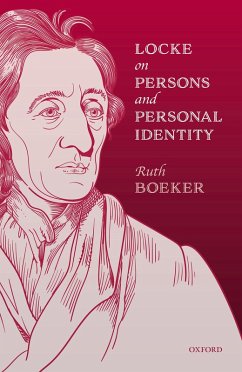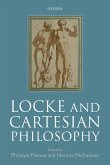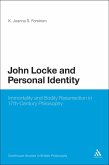Ruth Boeker offers a new perspective on Locke's account of persons and personal identity by considering it within the context of his broader philosophical project and the philosophical debates of his day. Her interpretation emphasizes the importance of the moral and religious dimensions of his view. By taking seriously Locke's general approach to questions of identity, Boeker shows that we should consider his account of personhood separately from his account of personal identity over time. On this basis, she argues that Locke endorses a moral account of personhood, according to which persons are subjects of accountability, and that his particular thinking about moral accountability explains why he regards sameness of consciousness as necessary for personal identity over time. In contrast to some neo-Lockean views about personal identity, Boeker argues that Locke's account of personal identity is not psychological per se, but rather his underlying moral, religious, metaphysical, and epistemic background beliefs are relevant for understanding why he argues for a consciousness-based account of personal identity. Taking his underlying background beliefs into consideration not only sheds light on why many of his early critics do not adopt Locke's view, but also shows why his view cannot be as easily dismissed as some of his critics assume.
Dieser Download kann aus rechtlichen Gründen nur mit Rechnungsadresse in A, B, BG, CY, CZ, D, DK, EW, E, FIN, F, GR, HR, H, IRL, I, LT, L, LR, M, NL, PL, P, R, S, SLO, SK ausgeliefert werden.









